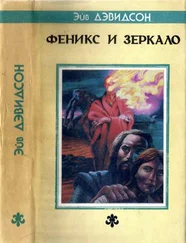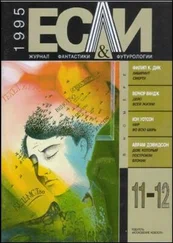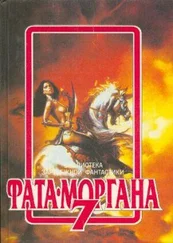Vergil Magus: King Without Country
by Avram Davidson & Michael Swanwick

Illustration by Steve Cavallo
Emericho, Count Mar, Master of the Ceremonies to the Emperor.
Oria, Countess Mar, Wife to the Master of the Ceremonies to the Emperor. Count Mar came from a very high and noble family indeed, and was indeed the last of his line. There had indeed been one sole cousin, an heir to the shrunken meadows and the crumbling chastel and to the very many honors, privileges, and titles. And when he had in fact died in battle against distant barbarians so barbarous and so distant that even Count Mar as a historian of war had never even heard of them (Turks, they were called. They were called Turks. And it was assumed that now that the Sub-commander of a Legion the Knight and Patriarch Ser Audulen Mar had given his life to defeat them, that they had slunk back into the wild wastes from which they had come, and would never again be heard of. Whence? That heartland of Asia More, Bactria Extra Oxum or some such syllables and babblement. Turkst), Count Mar had set up an altar and burned balsamum and myrrh. Himself the August Caesar had attended, as well as members of the Old Aristocracy. Which excluded those ennobled during the last seven reigns, or, rather, their descendents… unless said descendents were also descended from the Old Aristocracy. And everyone remarked how straight and erect had been Emericho Mar, the Count Mar, the Master of the Ceremonies at the Imperial Court, at the Court Imperial.
No one knew that afterward, all the servants sent away except that one servitor as old as the Count Mar and in fact his bastard brother by a garden-ing-maid, no one knew that the Emperor’s Master of Ceremonies had put his face upon his arms and wept aloud: not because of an especial fondness for the Sub-commander Ser Audulen Mar, whom he had never seen, nor had he ever seen his Father: but because the ancient and noble House of Mar had all but come to an end. The contents of the chastel might he leave as he would, but the chastel itself and the meadows at which grazed a flock of grizzled sheep of a race seen nowhere else, these would in no great time become escheat to the Crown Imperial, and the Emperor might do with them as he would.
House Mar: no more.
Vergil wiped the blood from the blade of his dagger, and set it aside. Carefully, he splayed the dove’s intestines and read the signs: Audacibus annue coeptis. Be favorable to bold beginnings.
He laughed and clapped his hands. The portents, horoscopes and auspices all agreed. This would be a marvelous day for the great work.
Which visible display of cheer should have spread quickly through the workshop major. Odd that it did not. There were a dozen workmen employed in various aspects of the Great Labor and though every man set to his task with a will, they exchanged many a nervous and even dark glance. They were all on edge. They would turn hastily away at his approach, as if there were something about his clothes or his appearance or his shadow that displeased them. Yet so good was their discipline that no one did speak a word to him. Not so much as boo.
None except the Chinese wizard Ma.
Ma came trotting up to him and with puppyish eagerness, said, “Great sir, stop. You are being superstition. Consider the sky. Consider the winds. Consider all life. Instead of kill birds, you must throw coins, separate yarrow stalks, consult Book of —” And then stopped, chagrined, because the tome whose divinatory authority he was about to (and, it might be added, far from the first time) call upon was not in his immediate possession. It had been some time, indeed, since he had last seen it. He was beginning to think he had left it behind. In his study. In Tai-Ting.
“Rest assured, my young colleague,” Vergil said, “that Roman science is quite advanced in the area of Prediction. Why don’t you go help out Oria in the workshop minor?” He was feeling particularly tolerant today. The signs were as good as he’d ever seen them. With such omens, absolutely nothing could possibly go wrong.
Also, as a scholar himself, he understood the pain of misplacing a book.
But Ma only shook his head pityingly, and thrust his hands each up the opposite sleeve of his tunic. When he was in such a mood there was nothing to do but ignore him.
The Chinese wizard had come to Vergil, as so many things did, as a gift. Technically speaking, he was a gift to the Emperor from the Great Cham the Son of Heaven, Conqueror of Hind, Tibet, Java Major and Minor (any day now, the deed was as good as done), Benevolent and Absolute Sovereign of the Middle Lands, aka Cathay, Qara-Khita, Greater Meng-tse, Serica, the Land of Silk, et cetera and cetera, amen. Who had heard distant reports of his beloved cousin’s glory and so sent, along with his compliments, a caravan of presents, including jugglers, carvers-of-ivory-balls, tigers, elephants, book-printing machines and mechanics to operate them, blackpowderers, kite-makers, fireworks artisans, and the odd inconvenient lateral heir to the throne itself, to say nothing of robes of hyacinth-purple silk, bolts of fine scarlet cloth, sandalwood casks of emeralds y-carven with Zodiacal ideograms, hempen sacks of peppercorns from Malabar and Tellicherry, cinnamon from Ceylon, brocades from the Isle of Lanka and dragon’s blood from Serendip, oh really the entire catalog is too tedious for recital. Let it be said: Munificent.
So the caravan set out for Rome. Past the Great Wall. Past the Gobi Desert. Over the cold Pamirs. Past the frozen and lofty Himalayas. Over the Oxus and the Jaxartes Rivers. Under the shadow of the Great Stone Tower. Across the waters of the Caspian Sea, heavy with sturgeon and epsom salts. Along the winter coasts of the Black Sea. Over the bars and shallows of the Indus with its ship-killing tides. Through the burning waters of the Erythraean Sea. Skirting first the crocodile-ridden lands of Gog and Magog, and then the hashish-beautiful lands of the Old Man of the Mountains and so to Babylon and past the ruined stump of Babel’s tower and then Byzantium and… well, it was a long trip.
At the end of which Ma, with his thousand-drawered pothecary chest, was the sole survivor to prostrate himself before the throne and offer the Chinese Emperor’s fondest compliments to his cousin, the King in Rome.
The King in Rome.
Caught ye that? as the Emperor would say. King in Rome, which was as good as to imply nowhere outside of Rome. It was a calculated insult. No sooner were the fatal words were out of the politically innocent (to say nothing of pig-ignorant) Chinese wizard’s mouth, than the court generals bristled and clapped hands to swords, ancestral memories of martial glory kicking up dust in their ancient skulls, and prepared for the clarion call to a senseless decade or two of yet another ruinous land-war in Asia.
But Good King Festus, as the denizens of the war-foddering classes were wont to call him, when they thought of him at all, which was—let’s be honest—not all that often, Festus as we began to say, had an original and straightforward mind. He knew how to make trouble disappear with a word. “No, no, dear child,” he said with a dismissive flick of the fingers. “I am the King of Rome. You want the King in Rome, which would be…” He consulted with an advisor. “Vergil. King Vergil, on the Street of Mages. Down the via and second left, you can’t miss it.”
And so the bewildered but ever-loyal-to-his-Emperor’s-command little wizard had come trotting down the yellow brick streets of Rome and into Vergil’s life.
Читать дальше









